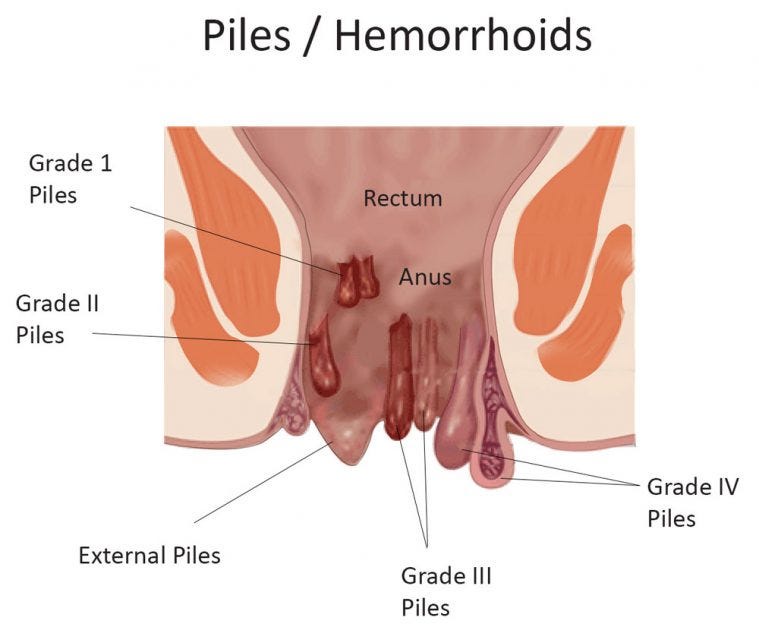Piles, medically known as hemorrhoids, refer to swollen veins located in the lowest part of the rectum and anus. They are very common, with estimates indicating up to 75% of adults will experience them at some point. Piles can be internal (inside the anus) or external (under the skin around the anus). There are various causes, including constipation, straining during bowel movements, pregnancy, obesity, and sitting for long periods. Treatments range from over-the-counter remedies to medical procedures like sclerotherapy, banding, and surgery. In moderate to severe cases of piles, surgery often provides the best relief.
Types of Piles Surgery
There are several surgical options to treat hemorrhoids, depending on their size, location, and severity. Popular techniques include:
- Hemorrhoidectomy - Excision of the hemorrhoid tissue through an incision. It offers the highest success rates but involves a more painful recovery.
- Stapled Hemorrhoidopexy - A stapling device pulls prolapsing tissue back in place. Less painful than hemorrhoidectomy but has risks like rectal prolapse.
- Hemorrhoidal Artery Ligation (HAL) - Hemorrhoid arterial supply is cut off, causing tissue to shrink. Minimally invasive with faster recovery than hemorrhoidectomy.
- Laser Hemorrhoidoplasty - hemorrhoids are excised using a laser beam. Low pain and fast recovery but high recurrence risk.
- Doppler Guided Hemorrhoid Artery Ligation - Identifies arterial blood supply using Doppler ultrasound to guide targeted suture ligation. Minimally invasive option.
Which surgery is recommended will depend on examining the grade of piles, location, risks and benefits, and patient preference.
Preparing for Piles Surgery
Thorough preparation is vital before undergoing piles surgery. Your doctor will give instructions for preparing the bowel through diet, laxatives or enemas prior to surgery. This clears the rectum to allow better access and visibility. You may be prescribed antibiotics or be asked to wash the surgical area with antibacterial soap. Follow directions to discontinue blood thinners and stop eating/drinking at the recommended time before surgery. Arrange for transportation and at-home assistance during recovery.
Recovering from Piles Surgery
Initial recovery usually takes 2-4 weeks with heavy activity restricted during that time. Pain, swelling, bleeding and bruising are common after surgery. Your doctor will prescribe pain medication to manage discomfort. Sitz baths, ice packs, and witch hazel pads can relieve post-surgical symptoms. Keep the area clean to prevent infection. Bowel movements should be softened with fiber supplements to avoid straining. Follow up with your surgeon as directed for wound checks and removal of any sutures.
Risks and Complications
All surgeries carry risks like infection, bleeding, adverse reactions to anesthesia, and blood clots. Specific complications like urinary retention, rectal stricture, anal incontinence, and recurrent piles may also occur after hemorrhoid surgery. Choosing an experienced surgeon like Dr. Rama Krishna at Narayana Superspeciality Hospital Gurugram can help minimize these risks. Contact your doctor immediately if you experience any concerning symptoms after surgery.
Long-term Outlook After Piles Surgery
Full recovery can take up to 6 weeks. With proper surgical treatment, most patients find long-term relief from the pain and bleeding of piles. Be sure to maintain good toilet habits, proper hydration, a high fiber diet, and healthy body weight to prevent recurrence. Some prolapsing or skin tags may remain after surgery but usually don’t require additional treatment. Check with your doctor about managing any residual symptoms post-surgery.
When to Consider Piles Surgery
Conservative treatments like over-the-counter topicals, dietary changes, sitz baths and medical procedures can effectively treat early stage piles. Surgery may be indicated for grades 3 and 4 hemorrhoids that persist despite other remedies. Symptoms like intense pain, bleeding, prolapse outside the anus, blood clots and Strangulated hemorrhoids may also warrant surgical intervention. Patients with concerns about piles symptoms, treatments and surgical options can schedule a consult with top proctologists at Narayana Superspeciality Hospital Gurugram.


No comments yet